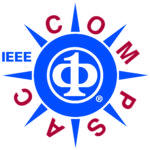COMPSAC 2023 Symposium on Smart & Connected Health (SCH)
Technical Program
*= in-person presentation in Torino
Fetal ECG Signal Processing for Fetal Monitoring Based on BSS and EMD*
Ionuț Manea and Dragoș Țarălungă
Post-stroke Exercise Assessment using Hybrid Quantum Neural Network*
Md Abdullah Al Hafiz Khan, Manohar Murikipudi and Abm. Adnan Azmee
Comphrensive Analysis of Dieting Apps: Effectiveness, Design, and Frequency Usage*
Allison Hsu and Ying-Feng Hsu
Transformer-based Automatic Mapping of Clinical Notes to Specific Clinical Concepts
Jay Ganesh and Ajay Bansal
Usability differences of telehealth technologies by Multi-linguistic and Multi-cultural users in UAE*
Fatma Refaat Ahmed, Ragad Ghassan Zabin, Rawan Saad Abukoush, Abdullah Ahmad Alnahoum, Mohammad Yousef Alkhawaldeh, Nabeel Al-Yateem, Muhammad Arsyad Subu Subu, Amina Alboloshi, Amina Al Marzouqi, Alkhansa Ahmad Alawad, Syed Azizur Rahman and Ahmed Hossain
OB-GYN Telehealth Access and Utilization During COVID-19: Racial and Sociodemographic Disparities*
Mohammad Yousef Alkhawaldeh, Muhammad Arsyad Subu, Nabeel Al-Yateem, Syed Azizur Rahman, Fatma Refaat Ahmed, Jacqueline Maria Dias, Mohannad Eid Aburuz, Ahmad Rajeh Saifan, Amina Al Marzouqi, Heba Hesham Hijazi, Mohammad Alshabi and Ahmed Hossain
The goal of the Smart and Connected Health (SCH) symposium is to provide an international forum connecting data, people and systems towards the development and integration of innovative computer, software and applications supporting the transformation of health and medicine. Advances in communications, computer, and medical technology have facilitated the practice of personalized health, which utilizes sensory computational communication systems to support improved and more personalized healthcare and healthy lifestyle choices. The proliferation of broadband wireless services, along with more powerful and convenient handheld devices, is helping to introduce real-time monitoring and guidance for a wide array of patients. Research community and industry are now connecting medical care with technology developers, vendors of wireless and sensing hardware systems, network service providers, and data management communities.
The symposium encourages research and breakthrough ideas in areas of smart and connected health such as networking, pervasive computing, analytics, sensor integration, privacy and security, socio-behavioral models, and cognitive processes and system and process modeling. The forum will increase more awareness of the constraints arising from clinical and medical needs, barriers to change, heterogeneity of data, semantic mismatch and limitations of current cyber physical systems and an aging population.
The SCH symposium seeks inter-disciplinary collaborative research that lead to new fundamental insights; and encourages empirical validation of new concepts through research prototypes, ranging from specific components to entire systems. It will open collaborations between academic, industry, and other organizations to establish better linkages between fundamental science, medicine and healthcare practice and technology development, deployment and use.
Submissions could consist of theoretical and applied research in topics including, but not limited to:
- Smart intervention for prevention of diseases
- Privacy preserving data analytics
- Smart and connected environmental public health
- Post operative health management
- Trauma treatment
- Patient-centric home
- Cognitive haptic based rehabilitation system
- Privacy preserving computation in genomic data
- Personalized drug delivery
- Monitoring of health conditions such as joint kinematics
- Mining for smart healthcare such as drug-drug interaction from Health Record Databases
- Patient similarity learning from massive clinical database
- Computer guided training systems in healthcare such as laparoscopy
- Smart and wearable systems to support mobility impaired children
- Non-invasive and wearable diagnosis of health conditions such has sepsis
- Wearable devices for in home monitoring of heart failure
- Smart systems for prediction and assessment of health conditions such as acute respiratory distress symptoms
- Intelligent clinical decision support systems
- Personalize evidence-based medicine
- Smart systems for reducing obesity
- Smart and Connected Health –Wellness and Prevention to Acute and Chronic Care
- Smart and Connected health for various care such as palliative and cancer
- Security and privacy in Smart and Connected health
- Telemedicine and mobile health for Smart and Connected Health
- Evidence Based Medicine and Clinical Practice Guidelines
- Data Analytics in Smart and Connected Health
- Ethics, privacy, and research regulations in Smart and Connected Health
The symposium seeks original, unpublished high impact research manuscripts on all topics related to smart and connected health topics. Papers will be selected on the basis of novelty, technical merit, presentation effectiveness and impact of results.
Paper Templates
IEEE Paper templates are available in MS Word 2003 and LaTex. All submissions must use US 8.5×11 letter page format.
Important Dates
Main Conference/Symposium
Main conference/symposium papers due: 15 January 2023Extended to 15 February 2023
Notification: 7 April 2023
Camera-ready and registration due: 7 May 2023 Updated: 18 May 2023
Journal then Conference Submissions
Due date: April 7, 2023
Notifications: April 30, 2023
Workshops, Fast Abstract, SRS Programs
EXTENDED: Workshop papers due: 21 April 2023
UPDATED: Notifications: 7 May 2023
UPDATED: Camera-ready and registration due: Updated: 18 May 2023
Submission Link
Please submit your paper on EasyChair
IEEE Conference Publishing Policies
All submissions must adhere to IEEE Conference Publishing Policies.
IEEE Cross Check
All submission will be screened for plagiarized material through the IEEE Cross Check portal.
SCH Symposium Chairs
William Chu, Tunghai University
Email: cchu@thu.edu.tw
Maria Valero, Kennesaw State University
Email: mvalero2@kennesaw.edu
Program Committee
Gianfranco Politano, Politecnico di Torino
Mohammad Masum, San Jose State University
Md Osman Gani, University of Maryland, Baltimore County
Valentina Nino, Kennesaw State University
Nabeel Al-Yateem, University of Sharjah
Md Abdullah Hafiz Khan, Kennesaw State University
Katherine Ingram, Kennesaw State University
Riddhiman Adib, Marquette University
Md Munirul Haque, University of Indianapolis
Sahra Sedigh Sarvestani, Missouri S&T
Syed Rahman Rahman, University of Sharjah
Mehdi Adda, UQAR
Anik Iqbal, Marquette University
Nazmus Sakib, Kennesaw State University
Femke DeBackere, University of Ghent
Zeyun Yu, University of Wisconsin Milwaukee
Jannat Tumpa, Marquette University
Farhana Zulkernine, Queen’s University
Sajedul Talukder, Florida International University
Marc Lacoste, Orange Lab, France
Chi Zhang, Kennesaw State University
Swapna Gokhale, University of Connecticut
Emmanuel Agu, Worcester Polytechnic Instittute
Imen Megdiche, CNAM-CEDRIC, France
James Weimer, Vanderbilt University
Jiaqi Gong, University of Alabama
Christopher Nugent, Ulster University
Chang-Soo Kim, Missouri S&T
Matt Thimgan, Missouri S&T
Syed Rahman Rahman, University of Sharjah

